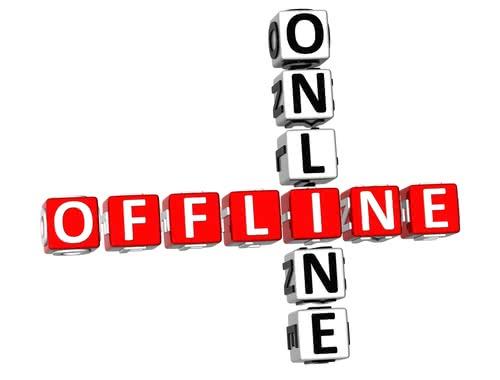We recently sat down with Marian Gazdik, the London Director at Startup Grind and a Virgin Startup Mentor, to ask about their approach to delivering successful hybrid events. You can follow him on twitter @mgazdik.
There has been talk about hybrid events for years, but they still haven’t broken into the mainstream. Do you see this changing?
Yes. The internet is changing the way we behave. After the initial phase, when the internet had to solve its infancy problems, now it is fast, reliable and even mobile. The internet as an enabler is ready. The next thing that needs to get sorted is the application layer. Streaming services are notorious for crashing, having quality issues, experiencing delays between video and audio feeds, etc. Even Apple’s streaming of it’s iPhone 6 keynote was a total fail.
However, let’s look at the big picture. The internet influences the way we consume content. Attending an event is also a way of consuming content. It will take some time for the applications to become more reliable and standardised for sure. But we are getting close to hybrid events becoming more mainstream.
What is wrong with the existing solutions for running hybrid events?
Perspective. Existing streaming provides simply have the wrong glasses on. They focus on the wrong experience. Yes, attendees want to have a great experience and online attendees do want to watch the event. Yet, the experience must not be the one of watching TV. With increasing numbers of interesting content pieces fighting for attention of people, attention spans are getting shorter. The moment the event gets a little boring, or there is a short break in the room, the online attendee is gone.
To solve this, firstly, the physical event needs to have a great atmosphere. When people in the room are energised and enjoy the event, those who watch online can feel it too.
Secondly, the online event should be treated as simplified version of the physical event. If people in the room can raise their hand and ask questions, so should online attendees. When people feel empowered, they are much more active.
What is new about your approach?
Our approach is simple. It starts in the physical event. We deliver online what we deliver at the physical event. People learn from the speakers, they can ask questions and they can network. Those are the key three things that are constantly on our attendees’ list of top priorities.
Listening to our customers is an important stage of our customer development. For example, in June we hosted the founders of Eventbrite. They are not only great speakers, but they also shared great startup advice with our audience. However we know that not everybody is comfortable to raise a hand and ask a question. So we use a simple solution, Sli.do, for letting people ask questions on their mobile browser.
During one hour, 200 people interacted 600 times.
CLICK TO TWEET
Why does it work?
We are far from being perfect. But we take many little steps to where we want to be. So far it works, because we listen and care about the feedback. Three key elements resonate as important in our customers’ eyes: Content, interactivity and networking. We work hard in putting these three elements to the forefront of what we do, both online and offline.
Some organisers are worried that having their event available online will cannibalise their live event. What would you say to that?
They should be worried, but this problem can be avoided. There are two parts of the answer:
1. Taking the steps in the right order.
When the event is sold out, nothing should stop an organiser to promote online access to that event.
2. Segmenting promotional activities.
If we want to sell out our physical event, we can focus on existing customers/prospects in our email list, meetup group, getting discovered on Eventbrite, or we can run a simple local social media campaign when we want to acquire new customers, as geography obviously counts.
Getting an audience to an online event requires a different mix of activities. We will probably focus on relevant global Linkedin groups and discovery platforms like Reddit, StumbleUpon or Quora – locality is less of an issue here, but the audience has to be very comfortable in a digital world.
If you’d like to see their hybrid events in action, you can join their talk with the billionaire founder of Metro Bank, Vernon Hill on 23rd Sep, at 6pm. Tickets are on sale now.





